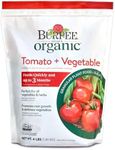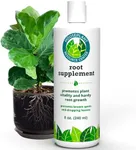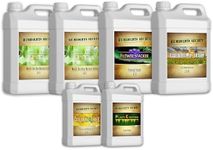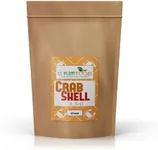Best Tomato Fertilizers
From leading brands and best sellers available on the web.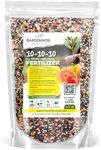
GARDENWISE
10%OFF
10-10-10 Plant Fertilizer Slow Release - 10 10 10 All Purpose Granular Garden Fertilizer for Vegetables, Tomato, Arborvitae, Shrubs, Rose, Flowers, Fruit, Fig Trees (1/2 Quart)

Miracle-Gro
17%OFF
Miracle-Gro Water Soluble All Purpose Plant Food, Fertilizer for Indoor or Outdoor Flowers, Vegetables or Trees, 3 lbs.

Osmocote
5%OFF
Osmocote Smart-Release Plant Food Flower & Vegetable, 1 lb.
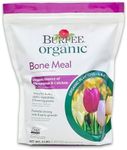
Burpee
16%OFF
Burpee Bone Meal Fertilizer | Add to Potting Soil | Strong Root Development | OMRI Listed for Organic Gardening | for Tomatoes, Peppers, and Bulbs, 1-Pack, 3 lb (1 Pack)
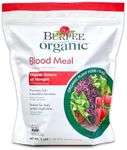
Burpee
36%OFF
Burpee Organic Blood Meal Fertilizer | Add to Potting Soil | Excellent Natural Source of Nitrogen | for Tomatoes, Spinach, Broccoli, Leafy Greens | 3 lb, 1-Pack
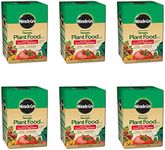
Miracle-Gro
Miracle-Gro 2000422 Tomato Plant Food Tomato Fertilizer (6 Pack), 1.5 lb

FoxFarm
FoxFarm - Big Bloom Plant Food, Liquid Fertilizer Concentrate for Flowers, Fruits, and Vegetables, All Purpose Plant Fertilizer for Indoor & Outdoor Potted Plants, NPK 0-0.5-0.7 (Pint)
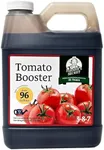
Farmer's Secret
5%OFF
Farmer's Secret Tomato Booster Fertilizer (32oz) - Super Concentrated - 3:8:7 Ratio Fortified with Humic Acid, Iron and Calcium - Grow More Tomatoes
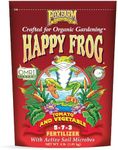
FoxFarm
Fox Farm Happy Frog Tomato and Vegetable Fertilizer - Dry Tomato Fertilizer for Strong Growth, Plant Resistance, and Root Efficiency, NPK 5-7-3 (4 lb Bag)
Our technology thoroughly searches through the online shopping world, reviewing hundreds of sites. We then process and analyze this information, updating in real-time to bring you the latest top-rated products. This way, you always get the best and most current options available.

Most Popular Categories Right Now


